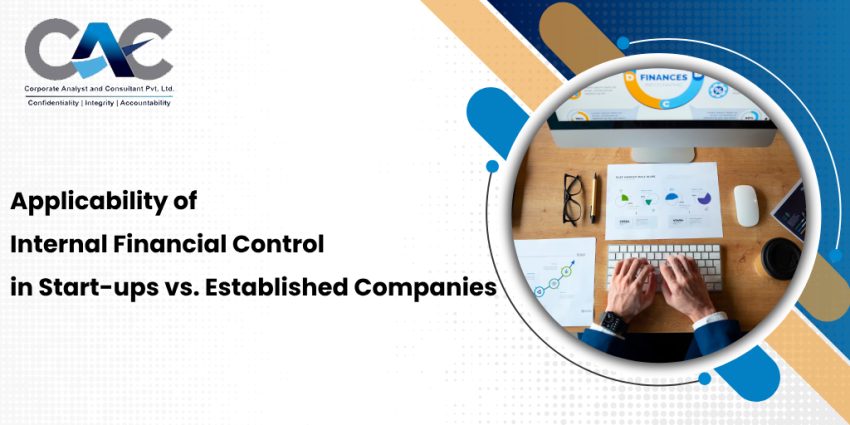Internal Financial Control (IFC) refers to the processes, policies, and systems designed to ensure accurate financial reporting, safeguard assets, and maintain compliance with regulations. While it is a key requirement under corporate governance laws, its relevance extends beyond compliance. The applicability of internal financial control varies significantly between start-ups and established companies due to differences in scale, operations, and risk exposure.
Understanding Internal Financial Control in the Start-up Context
In case of start-ups, adoption of IFC practices is likely to be regarded as a discretionary activity during the initial days. But nevertheless, even small businesses can have some minimum control measure e.g., proper documentation of the transactions, segregation of duties, and frequently conducted review of the financial condition. Controls are mostly informal in a start-up environment that does not have adequate resources and small teams, but they must be organized in such a way that they avoid errors and identify irregularities.
Applicability of internal financial control in start-ups is more geared along lines of creating scalable processes as opposed to introducing complex compliance systems. The key targets are to be transparent to the investors, should be credible and evade financial mismanagement, which may cause derailment of growth.
Internal Financial Control in Established Companies
In the case of large companies that are already established, IFC is not only good practice, but it is a legal and working requirement. Such organizations have greater volumes of transactions, numerous divisions and operations that are difficult to regulate without specific financial control systems.
In these types of businesses, the scope of the internal financial control reaches the area of adhering to regulatory requirements such as the Companies Act, the Sarbanes-Oxley Act (on listed companies) and industry guidelines. Established companies are known to have in-house audit units, software, and effective policies to keep track of financial transactions, avoid fraud and proper reporting.
Key Differences in Applicability
- Complexity: Start-ups need simple, adaptable systems, while established companies require detailed, multi-layered control frameworks.
- Regulatory Compliance: Large companies are mandated by law to document and report their IFC effectiveness, whereas most start-ups face fewer statutory requirements.
- Resource Allocation: Start-ups must balance control systems with cost efficiency, while bigger firms can dedicate significant budgets to internal audits and technology-based monitoring.
- Scalability: Start-ups implement IFC with future growth in mind, while established businesses refine controls for efficiency and regulatory adherence.
Why Both Need Internal Financial Control
No matter what the size is, all the businesses are susceptible to financial mismanagement, fraud and reporting issues. The internal financial control can be applicable in a startup and established business because it offers accountability, protection of resources, and better decision making. It creates investor confidence in case of start-ups or in legal compliance and operating stability of an already established firm.
Conclusion
The level of applicability of the internal financial control is complicated and wide ranging in start-up businesses but significant in all companies. Start-up businesses are advised to use flexible, cost efficient systems that can scale up with the businesses, whereas large companies are to have stringent controls that fulfill the legal, business and investor requisites. Both instances are a precaution as robust IFC practices are present to assure long-term viability and financial strength.

















